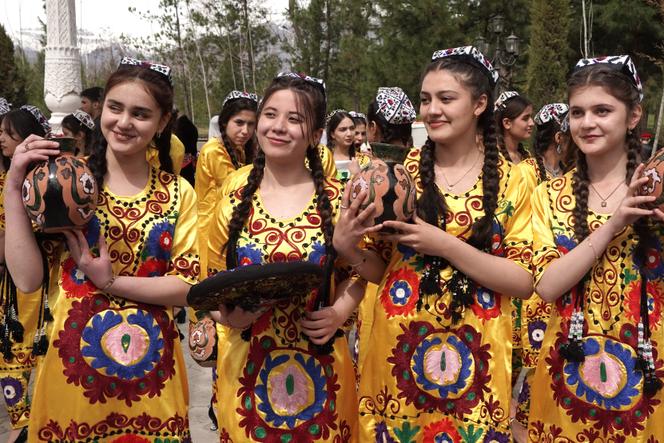


In Tajikistan, Islam is once again at the heart of the government's concerns. On July 26, the state-backed Council of Ulemas issued a fatwa, a religious decree forbidding women to wear "black clothes," as well as "tight-fitting and transparent clothing."
This decision followed the law passed on June 19, by the Majlissi milli, the upper house of the Tajik parliament, regarding the "regulation of traditions and rites." The measure bans wearing "clothing foreign to Tajik culture," a term widely used by the authorities to describe Islamic dress, which they consider an outward sign of religious extremism.
Prohibited everywhere in the public space, the hijab is particularly targeted by this law, signed the day after it was passed by President Emomali Rahmon, who has been in power since 1992. The decree is the latest in a long series of reforms introduced by the government, aiming to "protect national cultural values, and prevent superstition and extremism."
Breaking the law is punishable by a fine ranging from 7,920 somonis (around €690) for citizens, to 54,000 somonis for civil servants, and up to 57,600 somonis for religious figures. A joint working group of the Ministry of Culture, the Women's Committee and the Religious Affairs Committee has been set up to determine a dress code compatible with "Tajik values and traditions."
After banning the hijab in public institutions, including universities and government buildings, in 2009, the Dushanbe regime imposed a number of rules designed to prevent the resurgence of Islam and the religious influence of neighboring countries. While the Religious Affairs Committee redoubled its efforts to close down mosques, men are encouraged not to wear long beards. According to Abdullo Rahmonzoda, head of Tajikistan's youth and sports committee, these are an "expression of solidarity with terrorist groups" and represent a "threat to national security."
In a country where over 90% of the population is Muslim, these bans are part of President Rahmon's campaign against radical Islam since 1997. A repressive and authoritarian policy presented by the government as a safeguard against religious excesses. Since 2015, several hundred men, joined by a few elite officers, including the former head of Tajikistan's special police forces Gulmurod Khalimov, have left to fight with ISIS. Claimed by the jihadist group, the Crocus City Hall attack near Moscow in March, in which a Tajik national was involved, only served to reinforce the regime's mistrust of a radicalizing population.
You have 16.46% of this article left to read. The rest is for subscribers only.
